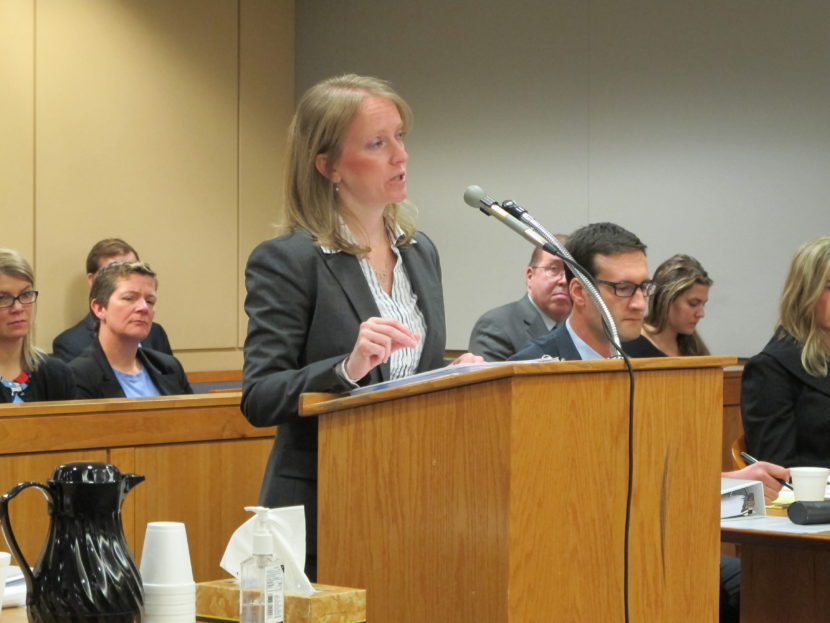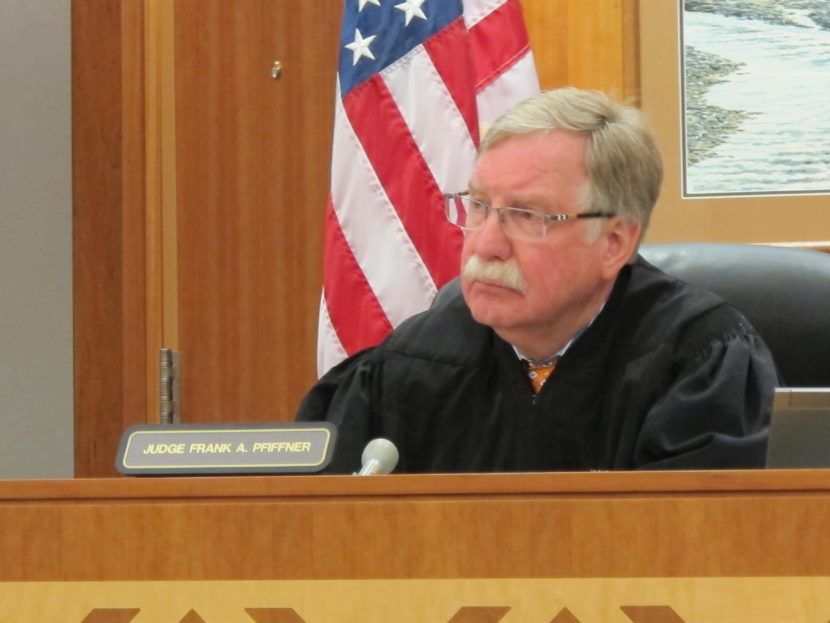
The Alaska Legislature’s lawsuit against the Gov. Bill Walker’s expansion of Medicaid hangs on the interpretation of the word “required” in Alaska statute. That’s a point all parties agreed on during oral arguments Thursday in an Anchorage courtroom.
The Legislative Council is suing over the governor’s decision to expand Medicaid without permission from the legislature. Alaska law says legislative approval is necessary to add an optional group to the Medicaid program. Federal statute lists the expansion population in the required category, but the U.S. Supreme Court ruled states can choose whether to expand the program.
Attorney Erin Murphy flew in from Washington, D.C., to present the legislature’s case. She told the judge that given the U.S. Supreme Court decision, the intent of federal law is obvious.
“We think the answer is quite clear that federal law doesn’t require this,” Murphy said. “And I think it’s very hard to come up with any explanation for why the legislature would have intended ‘required’ to mean anything other than what federal law actually requires.”
The state takes a more narrow view of the law.
Dario Borghesan argued the case for the administration. He said Alaska statute tracks the text of the Social Security Act, where the expansion population is listed as required.
“The legislature, when they enacted this statute 40 years ago, clearly wasn’t thinking about this situation today. Our view is the legislature simply wanted HSS, the Department of Health and Social Services, to straightforwardly apply what the instructions of the Social Security Act are,” Borghesan said.

Judge Frank Pfiffner asked both attorneys to address whether the issue of Medicaid expansion would be better handled by the legislature than the court system. Given scarce judicial resources, he wondered if he should “slow roll” his decision until after the legislative session wraps in the spring.
“Giving the legislature an opportunity to stand up and be counted, so that the voters will know whether they support or don’t support Medicaid expansion,” Pfiffner said.
Pfiffner said he would issue a “lengthy” decision in the case by the end of March at the earliest. He said his decision was likely only a “speed bump” on the way to the state Supreme Court.
About 8,000 low-income Alaskans have enrolled in Medicaid under the expansion. A new report from a consultant hired by the Legislative Budget and Audit Committee calls expansion a “highly attractive policy change financially” for the state.
This story is part of a reporting partnership between APRN, NPR and Kaiser Health News.
